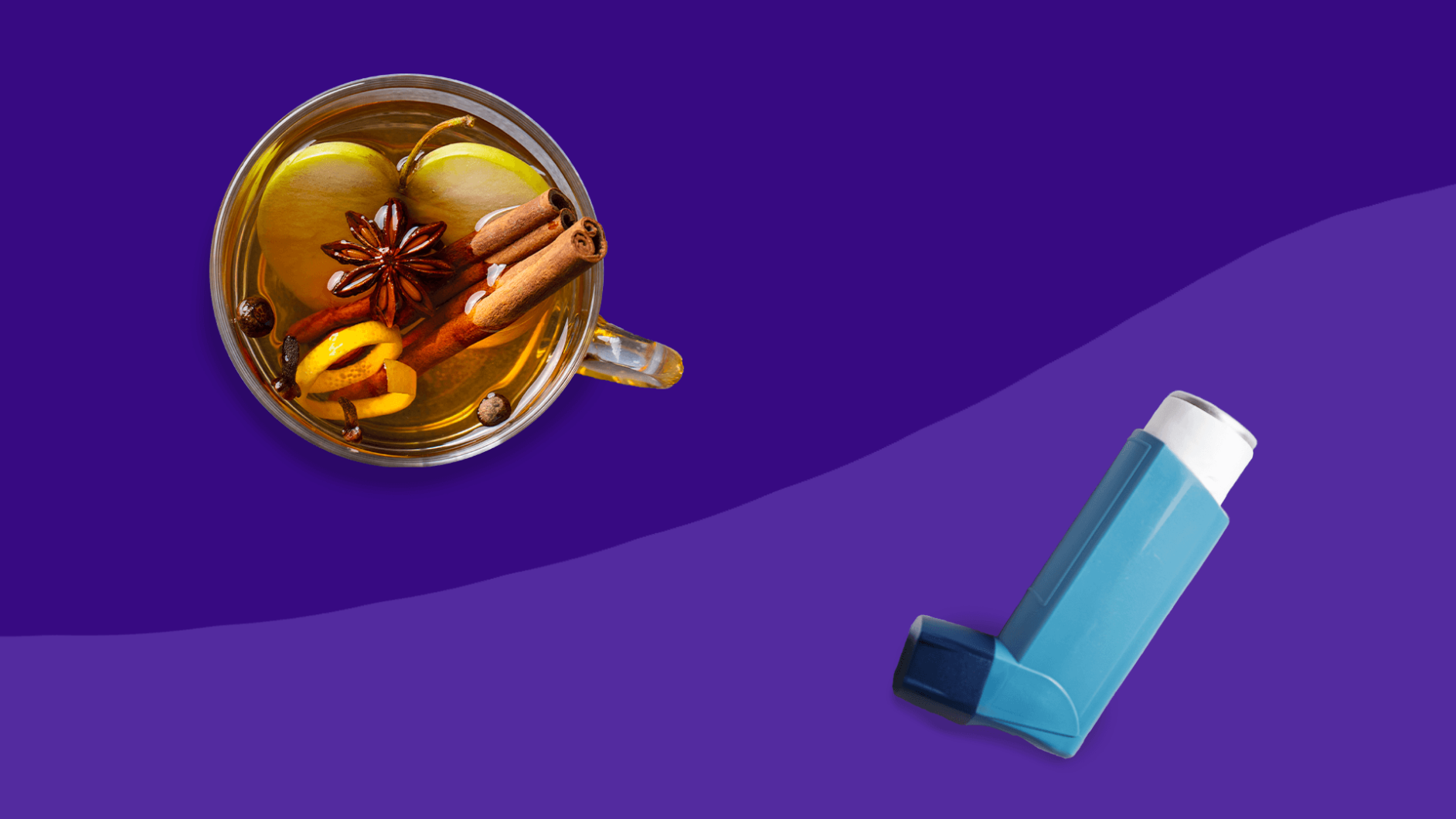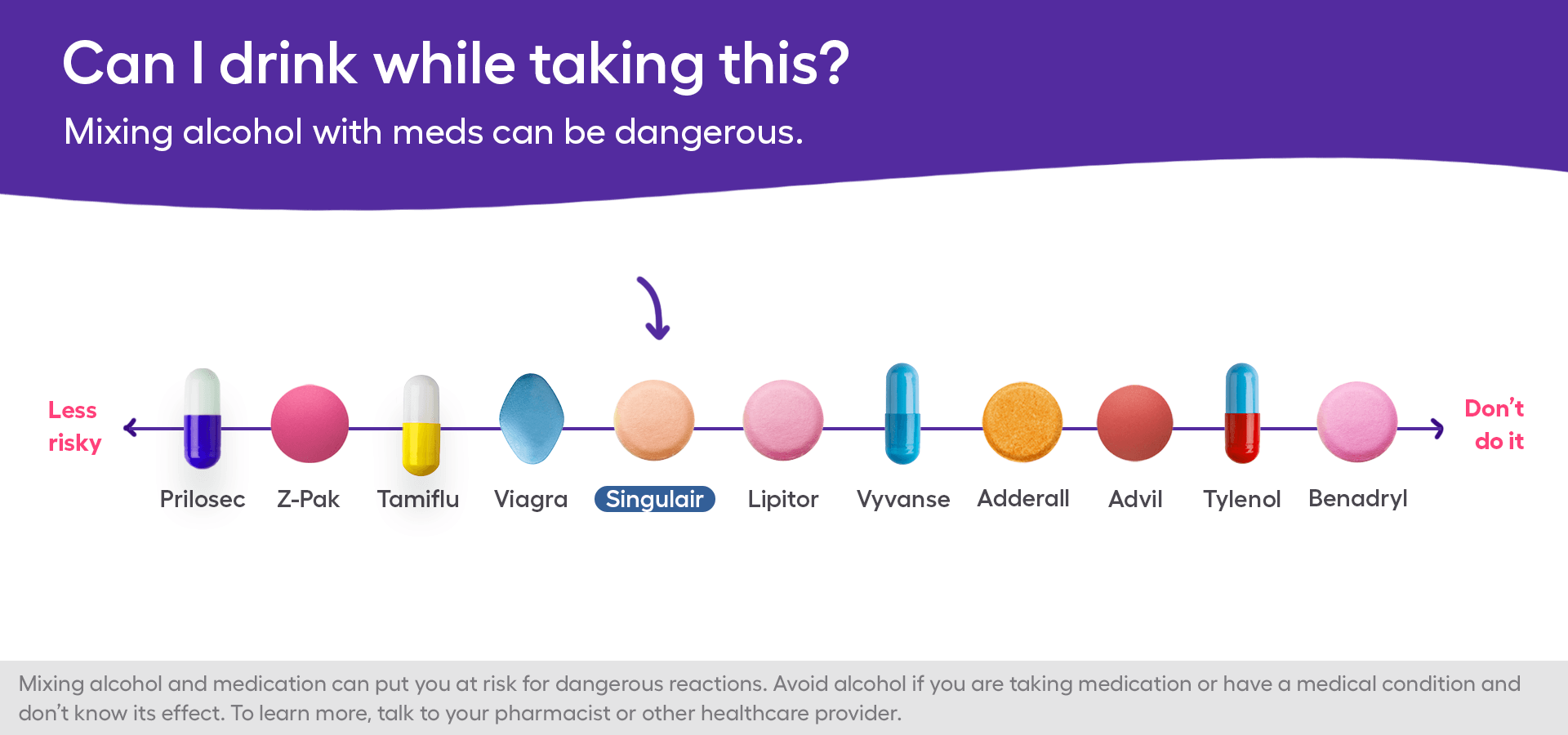Key takeaways
The prescribing information for albuterol HFA and other popular asthma inhalers, such as Xopenex HFA and steroid inhalers, does not list an interaction with alcohol.
Singulair (montelukast) does not have a direct interaction with alcohol listed in its prescribing information, but liver problems have occurred in some people taking Singulair, especially those with other risk factors like alcohol use.
Studies and surveys indicate that alcohol can worsen asthma symptoms in 30% to 35% of people, particularly with beverages like wine due to histamine and sulfites, and reactions are more common in people with AERD (aspirin-exacerbated respiratory disease).
Despite mixed study results on alcohol’s effect on asthma, medical advice generally recommends that people with asthma should avoid alcoholic beverages to prevent possible exacerbation, but small amounts might be acceptable for those with mild and well-controlled asthma. Consult a healthcare provider for professional medical advice.
With the holidays around the corner, even if you’re staying home, there’s bound to be lots of delicious treats—charcuterie boards and Christmas cookies galore to eat, and yummy sips like hot chocolate bombs and eggnog to drink!
But if you are one of the millions of adults in the U.S. with asthma, you might wonder, do alcohol and asthma go together? Can you take your asthma medications and drink alcohol, too? Read on to find out.
Can you mix albuterol and alcohol?
People with asthma often have a rescue inhaler, such as Proventil HFA, ProAir HFA, or Ventolin HFA—or the generic, which is albuterol HFA. Regardless of which albuterol formulation you use, you’ll want to know if albuterol and alcohol go together.
The good news is that the prescribing information for albuterol HFA does not list an interaction with alcohol. The prescribing information for Xopenex HFA (levalbuterol), another popular rescue inhaler, also does not list an interaction with alcohol.
Other popular asthma inhalers include steroid inhalers and steroids in combination with long-acting beta-agonists. Examples of steroid inhalers include Flovent HFA, QVAR Redihaler, and Pulmicort Flexhaler. More good news for those looking for an occasional cocktail: These asthma inhalers also do not have interactions with alcohol.
Can you mix Singulair and alcohol?
Now that we’ve established that inhalers do not have interactions with alcohol, let’s turn to the popular asthma medication Singulair (montelukast). According to the prescribing information, there is no direct Singulair and alcohol interaction listed. However, liver problems have occurred in people who take Singulair. Most cases occurred in people with other risk factors, such as alcohol use. So, if you take Singulair or its generic (montelukast), you should only drink alcohol if your doctor approves it. Ask your healthcare provider if you can drink alcohol, and if so, how much is safe.
Can I drink if I have asthma?
So, if you have asthma, can you drink at all, regardless of what medication you take? Unfortunately, there’s not a lot of data out there. One study described how alcohol could cause many allergic responses, including asthma, cough, headache, and itching. This can affect many people with asthma who drink. In surveys of people with asthma, 30% to 35% of respondents reported worsening asthma after drinking wine, beer, or spirits—with wine most commonly reported as a trigger. This could also be due to components of the wine, like histamine and sulfites, which may cause reactions. Also, reactions to alcohol occur more in people with AERD (aspirin-exacerbated respiratory disease) than in people who can tolerate aspirin.
A review of studies suggests mixed results are possible—some people find that alcohol worsens asthma, while others actually saw an improvement. Nevertheless, the study authors recommend that people with asthma should still “avoid alcoholic beverages because they may cause an exacerbation of asthma.”
Because everyone is different, it’s always best to check with your healthcare provider for medical advice about alcohol consumption and quantity. If your asthma is mild and well-controlled, you may be able to enjoy small amounts of alcohol/alcohol in moderation. Cheers to a healthy holiday season!





